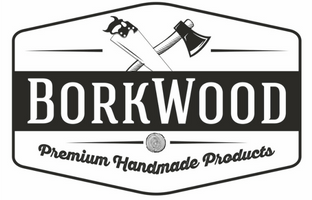The Future of Lead Generation in the UK: Predictions for 2025 and Beyond
As we move further into the digital age, businesses in the UK are constantly looking for ways to optimize their lead generation efforts. You may be wondering what the future holds for lead generation, and how you can stay ahead of the curve.
Is traditional lead generation still effective, or do businesses need to change their approach to keep up with evolving technologies and strategies? What role will automation, AI, and other innovations play in shaping the landscape of lead generation in the UK?
In this article, we will explore predictions for the future of lead generation in the UK for 2025 and beyond, and discuss how businesses can prepare for the changes ahead. If you’ve been searching for ways to improve your lead generation strategy, or if you’re unsure about the direction it’s headed, you’re in the right place.
We’ll break down the key trends to watch out for and provide actionable insights to help you stay ahead of the competition.
Why Is Lead Generation Such an Important Focus for UK Businesses?
Lead generation has always been essential to business growth, but as the market becomes more competitive, it’s increasingly crucial for businesses to find effective ways to attract, nurture, and convert leads. Especially in 2025, lead generation will be more than just gathering contacts—it will be about developing relationships with prospects that are likely to turn into loyal customers.

The right lead generation strategies can help businesses:
Increase sales:
Targeted efforts lead to higher-quality leads, which means more chances to close deals.
Improve customer relationships:
Generating leads the right way allows businesses to build trust and engage with potential customers on a deeper level.
Enhance brand awareness:
With the right outreach, your brand can reach a wider audience, increasing awareness and recognition.
Generate long-term revenue:
Successful lead generation doesn’t stop at just one sale; it’s about fostering repeat business and referrals over time.
As the role of lead generation grows in importance, businesses must adapt and adopt the latest tools and strategies to keep up.
What Does the Future of Lead Generation Look Like?
1. Automation and AI: The Game Changers
In 2025, automation and artificial intelligence AI will continue to play a massive role in lead generation. These technologies are already transforming the way businesses identify, engage with, and nurture leads. AI, for example, can predict the likelihood of a lead converting into a customer based on past behaviors and patterns.
This allows businesses to:
Personalize outreach at scale: AI tools can help you create highly tailored campaigns based on the specific needs of each lead.
Automate repetitive tasks: By automating processes like email outreach and follow-ups, you can free up time for your team to focus on higher-level tasks.
Qualify leads more effectively: AI-powered systems can analyze a lead’s interactions with your content and website to determine whether they’re ready for conversion.
For businesses looking to stay ahead of the game, partnering with a Top Lead Gen Agency that specializes in AI-driven lead generation tools will be essential. These agencies can implement the latest technologies to ensure that your lead generation process is not only more efficient but also more accurate in targeting the right prospects.
Read also: Lead Generation Challenges for UK Businesses
2. The Continued Growth of Video and Visual Content
Video content has exploded in recent years, and its importance will only grow in 2025. As video consumption continues to rise across all age groups, it’s increasingly becoming a critical tool in lead generation. Video allows businesses to engage with their target audience on a more personal level, making it easier to build trust and credibility.
Webinars: Hosting live webinars or Q&A sessions can help you connect with potential leads in real-time, providing them with valuable insights and offering them a chance to interact with your brand.
Explainer videos: Short, informative videos can explain complex products or services in a digestible format, encouraging leads to take the next step.
Video ads: Video ads can run on platforms like LinkedIn, YouTube, and Facebook, helping businesses reach a wider audience and attract more qualified leads.
The power of visual content lies in its ability to capture attention quickly. With platforms like YouTube and LinkedIn offering more opportunities to showcase video content, businesses will need to prioritize creating engaging and high-quality videos to fuel their lead generation efforts.
3. Voice Search and Conversational Marketing
As voice assistants like Alexa, Siri, and Google Assistant become more common, the way people search for information is changing. Voice search is predicted to significantly impact lead generation strategies in 2025 and beyond. According to a study, over 50% of searches in the UK are expected to be voice-activated by 2025.
This shift will require businesses to adapt their content and SEO strategies:
Long-tail keywords: Voice search typically involves longer phrases, so businesses will need to optimize their websites and content for more conversational keywords.
Conversational landing pages: Conversational marketing, which involves chatting with leads via messaging platforms or live chat, will continue to grow. Websites that feature chatbots, automated response systems, and personalized messaging will have an advantage in generating leads.
For businesses looking to stay ahead of the competition, integrating voice search optimization and conversational marketing strategies into their lead generation campaigns will be essential.
Read also: ReactJS for Cross-Platform Solutions
4. Social Media and Influencer Partnerships
Social media continues to be one of the most important tools for lead generation. By 2025, social platforms will be even more integral to B2B lead generation efforts, with businesses needing to engage with leads across a wider range of channels. Influencer marketing will also continue to rise, with businesses partnering with industry experts to promote their products and services.
LinkedIn for B2B: LinkedIn will remain the go-to platform for professional networking and B2B lead generation. Optimizing your company’s LinkedIn page, sharing valuable content, and actively engaging in industry groups will be key strategies for generating leads in 2025.
Instagram and Twitter for awareness: Platforms like Instagram and Twitter can also drive awareness and help create top-of-the-funnel leads. Posting engaging content, using hashtags, and engaging with your followers can help you reach a larger audience.
Influencer collaborations: Collaborating with influencers within your niche or industry can increase trust and credibility, helping you attract more qualified leads.
5. Data Privacy and Ethical Lead Generation Practices
As the concern over data privacy continues to grow, businesses will need to take extra care in how they collect and manage leads. The UK’s General Data Protection Regulation GDPR has set the standard for how businesses must handle personal data, and as the lead generation landscape evolves, respecting privacy will be more critical than ever.
Transparency: Businesses will need to be transparent about how they collect data and what they do with it. Providing opt-ins and clear privacy policies will become essential.
Ethical lead generation: Using ethical practices to collect leads and engage with them will not only ensure compliance with data privacy regulations but also build trust with your audience.
As we move forward, being a responsible and ethical business will become a crucial element of any successful lead generation strategy.
How Can Businesses Prepare for the Future of Lead Generation?
The future of lead generation in the UK will require businesses to continuously adapt and embrace new technologies, strategies, and platforms. By staying on top of trends like AI, voice search, video content, and social media marketing, businesses can stay ahead of the curve.
Embrace automation:
Invest in tools and technologies that can automate repetitive tasks and help you focus on more strategic efforts.
Focus on personalization:
Tailor your lead generation efforts to the specific needs and behaviors of your target audience to increase the chances of conversion.
Use a multi-channel approach:
Don’t rely on just one channel; diversify your efforts across social media, email, content marketing, and SEO to reach your audience where they spend their time.
A Top Lead Gen Agency will be invaluable in helping businesses implement these strategies. With their expertise and experience, they can develop a comprehensive lead generation plan that incorporates the latest trends and technologies, ensuring that your business generates high-quality leads and stays ahead of the competition.
Conclusion
The future of lead generation in the UK looks exciting, with many opportunities to enhance the process using innovative technologies and strategies. By embracing AI, voice search, social media, influencer marketing, and ethical lead generation practices, businesses can optimize their lead generation efforts and improve their overall success.
To stay ahead of the competition in 2025, it’s crucial to adopt these strategies and continuously refine your approach. If you’re unsure where to start, partnering with a Top Lead Gen Agency can help you develop an effective lead generation strategy that drives results.
By staying informed, adapting to changes, and investing in the right tools, your business can successfully navigate the future of lead generation and position itself for long-term growth.


